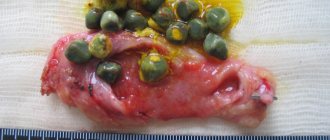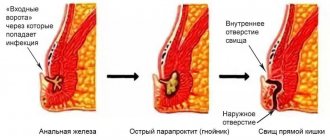Worm infestations are observed in more than 1.5 billion people. You can become infected with worms through food, raw water, or through contact with a sick person.
Helminthiases or helminthic infestations are a group of diseases caused by parasitic worms that live in the human body. According to the latest data, 1 in 100 people are hidden carriers, and about 80% of new cases of the disease occur in children and adolescents. At the same time, helminthiases are recorded not only in underdeveloped countries: often outbreaks of enterobiasis and ascariasis occur among wealthy segments of the population.
The wide distribution of helminthiases is explained by the asymptomatic course of the disease in the early stages. Also, symptoms of infestation do not appear when the number of parasites in the body is small. The patient may not suspect the presence of parasites for a long time, but still infect others.
How dangerous are worms?
Today, there are 360 known species of worms that are dangerous to humans. Most of them parasitize in the human intestines or liver, but, depending on the type of parasite and its life cycle (egg, larva, adult), any organs and systems can be affected: lungs, heart, central nervous system, muscles, eyeballs, etc. Further.
The main damage caused by helminths is:
- gradual development of anemia (insufficient number of red blood cells). Worms consume nutrients from the intestines, as a result the body does not receive enough micro- and macroelements, the patient loses weight and suffers from vitamin deficiency;
- destruction of organs and tissues. Many worms penetrate the intestinal walls and damage surrounding tissues during migration. Microscopic wounds and ulcers form on organs, the gastrointestinal mucosa is constantly inflamed, and the risk of infection increases;
- pathologies of the nervous system. Worms not only destroy the tissues surrounding them, but also release waste products - toxins that have a destructive effect on the central and peripheral nerves. The patient becomes nervous, irritable, and is bothered by headaches, insomnia, lethargy and apathy;
- allergic reactions. Worm waste products (toxins) are also dangerous allergens. Therefore, with helminthic infestations, a skin rash often develops, itching appears, and nausea and vomiting are possible.
Helminthic infestations in children can cause developmental delays and lead to dangerous complications: from perforation (through ulcers) of the intestines to paralysis of the arms and legs.
Important diagnostics
Modern diagnostic methods make it possible to identify almost all types of parasites. However, cases of infection often remain unsolved. Usually patients do not even think that they could be attacked by worms. After all, weakness, depression, loss of appetite, headaches, allergic reactions can occur with a variety of diseases.
As a result, people are not given the necessary examination, and the true cause of the illness is not revealed. And the person continues to visit doctors and take useless medications.
Therefore, diagnosing parasitic infections is very important. Especially in cases where the diagnosis is not fully understood, treatment does not help the person well, and complaints remain.
Helminths are typical representatives
The most common types of parasites include:
- Pinworms are roundworms that penetrate the rectum and colon. Infection occurs when personal hygiene rules are not followed;
- Roundworms are roundworms that attack the small intestine. During the development cycle, they can migrate along with the blood and lymph flow, entering the lungs and heart;
- The whipworm is a round worm that lives in the large intestine. It penetrates into the mucous membrane with the help of a thin head, damaging the integrity of tissues and causing microulcers;
- opisthorchis are flatworms that infect the liver. Parasites clog the ducts, causing stagnation of bile and disrupting the normal functioning of the organ;
- crooked heads are roundworms that parasitize the duodenum. Infection occurs through contact with larvae, which pierce the skin, enter the bloodstream and spread throughout the body;
- bovine tapeworm is a tapeworm that reaches a length of up to 10 meters. Occupies almost the entire intestine, leading to severe exhaustion;
- intestinal eels are roundworms that penetrate the colon and cecum. To lay eggs, the worms move closer to the anus, causing severe itching in the anal area;
- Echinococci are tapeworms that affect not only the gastrointestinal tract, but also the liver and lungs. They cause echinococcosis, a disease in which cysts form in various organs of a person.
What is this
Worms are considered the most common parasites in humans.
Today science knows about 300 helminthic diseases. The most common are intestinal helminthic diseases - enterobiasis and ascariasis, which affect more than 2 billion people. The size of worms living in the body varies from a few millimeters to several meters. For example, the length of pinworms that cause enterobiasis does not exceed 1 cm. Some tapeworms (for example, the broad tapeworm) reach a length of 12–15 meters.
How can you tell if you have worms?
Depending on which organs are affected by helminthic infestation, patients may develop conjunctivitis, cough, headaches, swelling, and tremors of the extremities. In cases of severe vitamin deficiency, joint pain appears, hair falls out, and nails begin to peel. In children, helminthiasis can lead to delayed physical and intellectual development.
Common symptoms of worms in humans are:
- malaise, weakness, fatigue;
- allergies, such as skin rashes, coughs, asthma attacks;
- decreased or increased appetite;
- nausea, vomiting without poisoning;
- stomach ache;
- diarrhea or constipation;
- weight loss, even if the appetite is good;
- problems sleeping, insomnia;
- inflamed or enlarged lymph nodes;
- fever for no reason;
- pain in muscles and joints without exercise;
- snoring or grinding teeth in sleep;
- presence of worms in feces;
- itching in the anal area (often with pinworms).
How to find out if there are worms?
It is impossible to independently determine the presence of helminthic infestation. In the initial stages, the disease can be virtually asymptomatic. The patient does not experience pain; the immune system can suppress the pathogenic effects of toxins and allergens for some time. As a rule, exacerbation begins during the period of migration of larvae or with an increase in the number of worms. The stronger the infestation (i.e., the more parasites), the more symptoms appear.
However, the asymptomatic course of the invasion is dangerous - the patient infects others, and his health gradually worsens. To detect the disease, it is necessary to periodically undergo a preventive examination in the hospital. As part of prevention, the therapist prescribes tests for worms at least once a year. If you live in an endemic region - once every six months.
Helminth analysis
To detect helminthic infestation, the following tests may be prescribed:
- stool analysis. Feces are examined for the presence of helminth eggs. The analysis does not require preliminary preparation: the patient just needs to bring a stool sample;
- analysis for enterobiasis. To determine enterobiasis (a disease caused by pinworms), it is enough to take a scraping (smear) from the anal area. Usually the test is prescribed in the morning before going to the toilet;
- blood test for specific antibodies. The most revealing study that allows us to identify parasites such as roundworms, opisthorchis, acne, and lamblia.
Where to go if you suspect worms?
If you suspect a helminthic infestation, you must make an appointment with an infectious disease specialist. In the early stages, helminthiasis does not have specific symptoms, so it is quite difficult to suspect that you or a loved one have worms. As a rule, the patient complains of mild malaise: indigestion, headache, apathy.
If symptoms do not go away within a week or the condition returns periodically (for example, once every 3-4 months you feel unwell), you should consult your doctor. Attacks of poor health may be associated with the migration of parasites.
How to treat helminthiasis?
If worms are detected, the doctor prescribes antiparasitic drugs aimed at combating a specific type of worm. Modern drugs are equally effective against worms at each stage of the life cycle: adults, larvae and eggs. In most cases, a single dose of tablets is sufficient, but sometimes a course of medications is required - treatment is developed by a therapist or parasitologist.
It is unacceptable to deviate from the developed treatment tactics - this can lead to the worm eggs remaining in the body, which will subsequently cause re-infestation.
Along with antiparasitic drugs, drugs that improve the condition of the gastrointestinal tract, vitamins to eliminate vitamin deficiency, and antihistamines (for an allergic reaction) can be prescribed.
Helminthiasis: treatment with folk remedies
There are a sufficient number of methods for treating helminthiasis with folk remedies. Patients are advised to consume a large number of foods with strong essential oils: for example, drink clove infusions or eat garlic. Such methods are not only ineffective, but also dangerous.
If the intestines are injured by worms, then consuming products with strong essential oils will cause additional irritation of the mucous membrane, increase pain and problems with bowel movements.
You should also not use anthelmintics without consulting your doctor. Some drugs lead to the death of worms, but do not provoke their evacuation, i.e. they remain in the body, which causes severe poisoning. Safe treatment of invasion is only possible under the supervision of an experienced doctor!
Complications (helminthic infestation)
It is important for parents to both understand in a timely manner that their child has symptoms of worms and to carefully follow all the doctor’s recommendations. Only in this case can unpleasant and even life-threatening complications be avoided:
- intestinal obstruction;
- jaundice caused by blockage of the bile ducts;
- pancreatitis;
- pustular skin lesions;
- appendicitis;
- acute pulmonary failure;
- eye damage, accompanied by decreased visual acuity and development of strabismus;
- damage to the intestinal wall, peritonitis;
- encephalitis, megingoencephalitis, etc.
Prevention of helminthiasis
Treatment of helminthiasis should be carried out not only by the patient, but also by all members of his family. It is also necessary to boil bedding and underwear and carry out wet cleaning using disinfectants. In the future, to prevent helminthic infestation, it is recommended:
- control the quality of the foods you eat: do not eat unwashed vegetables, fruits and herbs, unprocessed meat or raw fish;
- observe the rules of personal hygiene, do not use other people’s towels and utensils;
- undergo a comprehensive examination once a year, including tests for worm eggs.
Helminth infections are highly treatable and do not cause serious damage to the body if detected in a timely manner. Therefore, the main thing is to seek medical help in time. To prevent helminthiasis, it is necessary to follow the rules of hygiene and undergo regular examination by a doctor.
Is it possible to get parasites through bed?
The eggs of pinworms and some other helminths live outside the animal or human body for several months, and in everyday life they can be found on any surfaces touched by the carrier. You can become infected with parasites through bed, dishes, doors, furniture, etc. So, if one family member is infected, then after a short period of time the rest of the household becomes infected. Everyone should get tested and begin timely treatment so as not to continue the spread of helminthiasis among loved ones and those around them.
- Expectorants for bronchitis
- Margarine cookies: recipes
- Throat abscess disease
Popular questions
1. Does a person lose weight when he has worms?
Weight loss is a possible, but not obligatory, symptom of parasitic infestation. Weight loss due to parasitic diseases may be due to disturbances in microflora and nutrient absorption processes in the intestines.
2. How to remove worms without drugs?
Parasitic diseases (worms) are treated medically using antiparasitic drugs. Only a doctor can prescribe anti-worm medications. The choice of antiparasitic drugs depends on the type of worms.
3. Why do worms come out?
The movement of worms in the human body is determined by the characteristics of their life cycles. For most parasites, getting out is how they spread and transmit. When released, worms can be detected not only in feces, but also in sputum and exhaled air.
6
6
6
Article rating:
4.2 out of 5 based on 40 ratings
Author: Blazhko Valentina Sergeevna
Infectious disease physician. First category. Work experience more than 10 years.
Who's at risk
Those who do not follow good hygiene are at risk of contracting worms.
Photo: gecko_studio / freepik.com No one is safe from infection with worms. It is enough to give slack in matters of hygiene, and the parasite larva can “break through” into the body. The following categories of people are especially susceptible to helminthiasis:
- Small children. Most often, helminthic infestations are observed in children. This is due to the fact that the child neglects the rules of hygiene. Small children put objects in their mouths and often dig in the dirt on the streets. In groups, children tend to come into closer contact with each other than adults, which also increases the likelihood of infection.
- Families with pets. Eggs and larvae of parasites that get from the street into a living room along with pets can be everywhere. Often, owners of dogs, cats and other animals are not even aware of the problem and find out about the presence of worms when they visit the veterinarian for another reason.
- Gourmets. Fans of exotic cuisine, such as sushi, raw meat or fish, are also at risk.
- Travelers. This is especially true for people traveling to countries with low levels of sanitary culture.
- Summer residents, agricultural workers. Persons working in vegetable gardens, gardens or simply living in rural areas.
- People who work with raw fish or meat. For example, sellers or cooks - when processing, cutting and preparing food.
Myth 1: There are no parasites in sea fish
Many people mistakenly believe that worms are found only in river fish, and that they are not found in sea fish due to salt water. Indeed, marine fish are predominantly affected by parasites that are not dangerous to humans. In this regard, raw river fish is more dangerous than raw sea fish. But this does not mean that sea fish is completely safe: representatives of Rospotrebnadzor recommend always processing any fish - thoroughly frying it, boiling it or freezing it for 3 days³.











